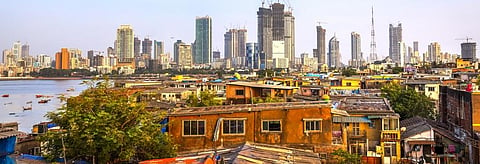Who is economically secular?
It is that time of the New Year when we get sentimental about the income inequality in the world, thanks to non-profit Oxfam’s consistent reminder with bitter data on wealth creation. Also, it is time for the annual World Economic Forum (WEF) summit that has now become the annual excursion for the planet’s richest, the byproducts of an unequal world.
Oxfam International’s report Public Good or Private Wealth is already making headlines. And the headlines are expectedly reading the same like such reports from past years. Similarly though not expectedly, International Monetary Fund (IMF) chief Christine Lagarde said “resilient, inclusive, collaborative” is what an economy should be, at the opening press conference in WEF.
Nobody will dispute this. She was worried about the weakening global economy, and also the rising dissents and grievances against globalisation.
The widening gap between the rich and the poor is old news. What the public utterances of experts representing both the sides hide is more worrying than the inequality. It is the immediate and long-term ramifications of inequality in wealth distribution. It is making the rich richer and the poor poorer.
It is the 10th anniversary of the 2008 global meltdown that not only dealt a near-fatal blow to the free market model but also a frenzy to save it. Country after country declared stimulus packages. The richest of the world had their worst experience with unbridled private wealth generation. And as it has been the mantra, ultimately wealth trickles down to the poorest, and equality in wealth is just possible this way. Has it been?
Now for a reality check from the Oxfam report. Since 2008, the number of billionaires has nearly doubled. “Meanwhile the wealth of the poorest half of humanity, 3.8 billion people, fell by 11%,” says the report. The “trickle” has not been ensured as only 4 per cent of taxes come from such wealth. Rather, in some countries (like Brazil and UK), “when tax paid on incomes and tax paid on consumption (value-added tax or VAT) are both considered, the richest 10% are actually paying a lower rate of tax than the poorest 10%”.
The “super rich” are apparently hiding $7.6 trillion from tax authorities. Inequality is not inevitable. “There is no law of economics that says the richest should grow ever richer while people in poverty die for lack of medicine. It makes no sense to have so much wealth in so few hands, when those resources could be used to help all of humanity. Inequality is a political and a policy choice,” says the report. This explains why poverty or access to wealth is not secular. Rather it depends on how endowed one already is.
Just before the WEF Summit, IMF Deputy Managing Director David Lipton blogged, indicating how voters across the developed and developing countries are losing “trust” in globalisation. And he argues that this has the potential capacity to “tear down” the international order, read globalisation model. An honest assessment but, as one delves a bit into his argument, he has said so basically from the perspective of those who have already benefited from the recession since 2008.
He wrote: “This resentment will make it far harder for taxpayers’ money to be used to shore up banks during the next crisis. If a future recession harms ordinary workers and small businessmen, states will come under pressure to financially support these people as they did for the banks in 2008. This could push up public sector debt to dangerously high levels.”
So, even though wealth generation has not trickled down to the poor, the champions of free market are again warning of a recession and how the world should prepare to again protect them, and not the bottom of the pyramid who would be the worst victims.
Also read


